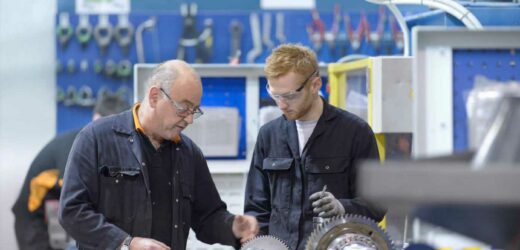MORE than a fifth of school leavers are turning their backs on university and aiming for jobs that don’t need a degree instead.
A survey of 1,000 16-18 year olds who are not yet in higher education found 73 per cent already have their future career plans mapped out.
But only half want to get a degree (50 per cent) with more than a third (34 per cent) preferring to get an apprenticeship and learn a job at the same time.
While 77 per cent do think they’ll get the grades needed to go to university – whether they want to or not – more than three quarters worry their future prospects have been compromised by schooling in the past 18 months.
As a result of the pandemic and the impact this had on education, 40 per cent have been rethinking their future plans.
The research, that was commissioned by Samsung, also found although 53 per cent are confident they’ll do well in their recent exams, of those who aren’t so assured they blame a lack of face-to-face teaching and no motivation for higher education.
A further 54 per cent said the economic effect of Covid-19 has created concerns over whether their family could afford to support them if they went to university.
And more than two thirds would have to work at the same time as studying if they did go onto further education.
On a positive note, an ambitious three quarters (77 per cent) believe their career aspirations will see them do better financially than their parents.
It also emerged a sixth of school leavers have felt unsupported during education when it comes to their personal needs and future plans.
Samsung commissioned the research to launch its ‘Solve for Tomorrow’ programme, an alternative educational experience that is allowing young people to remain in control of their futures in a time when it may be feeling quite uncertain.
Jessie Soohyun Park, head of corporate social responsibility at Samsung UK commented: “We know millions of students will be feeling anxious this year with uncertainties continuing with the pandemic.
“We would love to provide alternative ways that young people can stay learning and find new and exciting career paths that they may have not considered to date.
“We hope that ‘Solve for Tomorrow’ can offer them a range of learning experiences that will help to unlock their creativity, develop new skills and explore the role of technology in solving some of today’s most pressing social issues.”
The study also found the school subjects teens think weren’t useful for their future plans, with religious education (53 per cent), music (46 per cent) and food tech (41 per cent) coming out on top.
Whereas English, computing and maths were found to be the most helpful.
And 47 per cent of those polled via OnePoll feel everything they’ve learned at school so far has not been relevant to their future career plans.
People typically decided what they wanted to do when they ‘grew up’ at the age of 13, which included going into the fields of medicine and healthcare (11 per cent), computers and technology (7 per cent) and sports (6 per cent).
This year’s ‘Solve for Tomorrow’ programme begins with a focus on the future of education Hear from Steven Bartlett discuss how tech has a role to play in ‘Designing a Future where Learning is a Lifestyle’.
Source: Read Full Article




